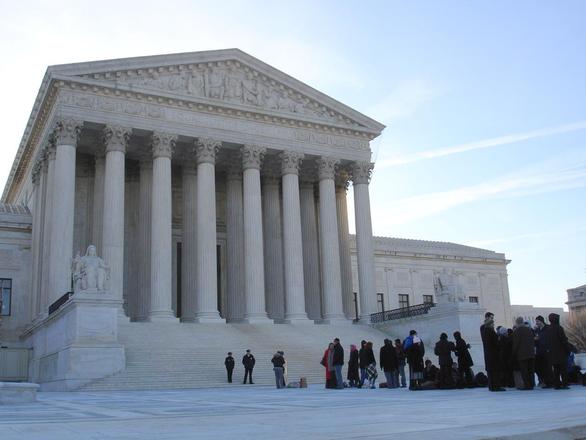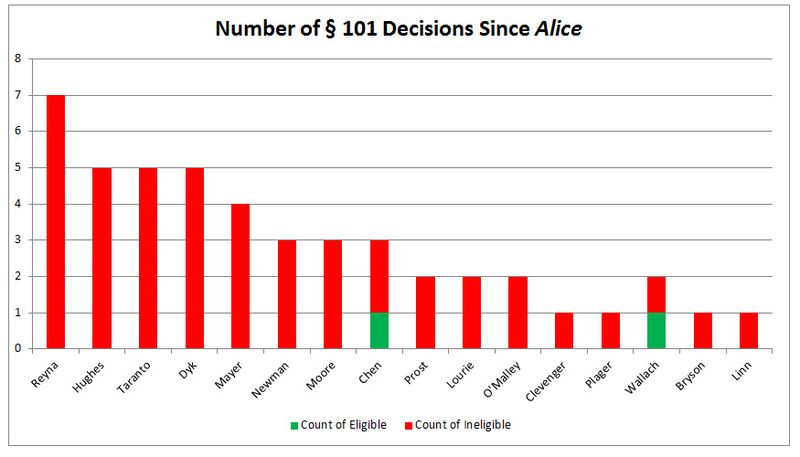Nederlands Juristenblad – 08.05.2015
English translation
Fundamental labour rights and immunity
The case against the European Patent Organisation (EPO)
Cedric Ryngaert & Frans Pennings1
The Court of Appeal in The Hague has created an international precedent in the case against EPO by rejecting the immunity of an international organisation in a collective labour law case, and also awarding the claims on their merits, based on the fact that the organisation in question violated fundamental human rights. This decision is important because it further institutionalises the accountability of international organisations. Unfortunately the Netherlands also showed itself at its most narrow-minded: the Minister instructed the bailiff to not enforce the judgement because the organisation enjoys immunity from enforcement under international law. This instruction not only erodes the separation of powers stipulated by the Constitution, it isn’t an obligation under international law either: as is the case for immunity from jurisdiction, immunity from enforcement can only be granted if the organisation adequately protects fundamental rights.
Introduction
In preliminary relief proceedings on 17 February 2015 the Court of Appeal in The Hague declared itself competent to give an opinion on the merits in the case against the European Patent Organisation (EPO)2 brought by two trade unions. This organisation is charged with implementing the European Patent Convention (EPC). The EPO is not an agency of the European Union; even states that are not members of the European Union are member states of the EPO. It is therefore an independent intergovernmental organisation that has a secondary office in Rijswijk. The Court was of the opinion that the EPO was not entitled to any immunity from jurisdiction in this case, in spite of the relevant stipulations in the headquarters agreement between the organisation and the Netherlands, because the unions were unable to bring their claim before any arbitration body.3 The Court consequently deemed the restrictions the EPO
_______________
Authors
1 Prof. Dr. C.M.J. Ryngaart and Prof. Mr. F. Pennings are Professors of international law and social law respectively, at the University of Utrecht
Notes
2 Court of Appeal in The Hague, 17 February 2015, ECLI:NL: GHDHA: 2015:255. The EPO has its head office in Munich.
3 Art. 3, par. 1. Protocol in respect of the privileges and immunities of the EPO; Art. 8 of the Convention in respect of the Granting of European Patents, this is the Convention established by the EPO.
had imposed on trade union formation and communication, and on the right to strike, a violation of fundamental collective labour rights. It ordered the EPO to grant the trade unions unrestricted access to the internal e-mail system of the EPO and to allow them to attend collective negotiations, and prohibited the organisation from applying the stipulations in its employment rules and regulations that restrict the right to strike. However, the Minister for Security and Justice ultimately instructed the bailiff not to enforce the Court’s decision, because such enforcement would mean a violation of the immunity from enforcement protected by international law.
After an overview of (1.) the history prior to the decision of the Court we use this contribution to critically reflect on (2.) the non-granting of immunity from jurisdiction to the EPO pursuant to the right to access to the courts as documented in Article 6 of the ECHR; (3.) the evaluation of the conduct of the EPO in relation to collective actions against the principles of international labour law; and (4.) the Minister’s instruction to not enforce the decision. Our perspective is based on international law on the one hand (par. 2 and 4) and on labour law on the other hand (par. 3).
1. History
It is not the first time that the EPO has been summoned to appear before a Dutch court in relation to a labour law dispute, and that the court had to decide on the EPO’s immunity from jurisdiction. An individual employee, Bertrand, had previously started proceedings against the EPO. In that particular case the Supreme Court judged in 2009 that individual labour disputes relate to the activities of the organisation; based on the criterion of functional necessity such disputes are therefore, in principle, subject to immunity from jurisdiction.4 However, the Supreme Court also stated that this immunity applied only insofar as the EPO provided alternative procedures that gave legal protection in accordance with Article 6 of the ECHR. This is an application of a principle as documented in 1999 by the European Court for Human Rights (ECHR) in the Waite and Kennedy and Beer and Regan cases: the admissibility of the granting of immunity from jurisdiction to an international organisation is dependent on the availability of an alternative that effectively protects the individual’s right to access to the courts.5 The Supreme Court was of the opinion that this legal protection was in fact being provided because individual employees of the EPO had access to a jurisdictional procedure before the International Labour Organisation Administrative Organisation (ILOAT), even if they were not entitled to a public hearing.6
_______________
4 Supreme Court 23 October 2009, ECLI:NL:PHR:2009:BI9632, legal ground 3.3 (ratification of ruling by the Court of Appeal in The Hague, 28 September 2007, ECLI:NL:GHSGR: 2007:BB5865).
5 ECHR, application number 26083/94 (Waite and Kennedy vs Germany); ECHR 18 February 1999, application number 28934/95 (Beer and Regan vs. Germany, legal ground 68 (“For the Court, a material factor in determining whether granting [the European Space Agency] immunity from German jurisdiction is permissible under the Convention is whether the applicants had available to them a reasonable alternative means to protect efficiently their rights under [Article 6 of] the Convention.”)
6 The Supreme Court ruled that it had not been proven or made evident that the Court would reject substantiated requests for a public hearing – even if public hearings rarely ever occurred in practice. HR 23 October 2009, ECLI:NL:PHR: 2009:BI9632, legal ground 3.5
However, neither the Administrative Organisation nor any other international dispute settlement mechanism has any jurisdiction with respect to collective labour law matters between EPO and its organised grouping of employees. After the EPO had restricted the right to strike and had blocked collective negotiations it was therefore only a matter of time before the trade unions of the EPO employees (VEOB and SUEPO) would bring proceedings before the Dutch courts: in 2013 these trade unions, referring, among other things to Article 6 of the ECHR, asked the District Court of The Hague to order the EPO to stop violating the right to strike and the right of collective bargaining; they claimed an urgent interest.
On 14 January 2014 the District Court of The Hague, in preliminary relief proceedings, made a judgement rejecting the immunity of the EPO because the trade unions did not have alternative legal means available that would effectively guarantee their right to have access to the courts within the meaning of Article 6.7 However, at the same time the Court stated that granting (part of) the claims could result in fragmentation of the Patent Organisation, in the sense that in the Netherlands different regulations must be applied than in other participating member states; according to the Court the essence of the immunity would therefore be affected, contrary to the immunity stipulation in the Convention in respect of the granting of European patents (Article 8 of the EPC), which guarantees the functioning of the Patent Organisation as a whole, including the application of organisation-wide and uniform regulations.8 The Court subsequently stated that the trade unions would have to take their claims to the central organisation of the EPO.9 Consequently, the District Court of The Hague first rejected the immunity of the EPO pursuant to incompatibility with Article 6 of the ECHR, and subsequently did confirm it based on the principle of functional necessity. The reasoning of the Court was not very convincing, and the trade unions therefore appealed to the Court of Appeal in The Hague.
In its ruling of 17 February 2015 the Court of Appeal in The Hague recognised the internal contradiction in the reasoning of the District Court of The Hague
2. EPO’s immunity from jurisdiction: a critical interpretation of the ruling of the Court of Appeal in The Hague
In its ruling of 17 February 2015 the Court of Appeal in The Hague recognised the internal contradiction in the reasoning of the District Court of The Hague; it stated that the trade unions did not intend the ‘fragmentation’ the Court was concerned about, even though the measures they appealed against were adopted for the entire organisation. With this statement the Court appeared to reject the argument that the absolute immunity, as documented in Article 3 of the Protocol in respect of Privileges and Immunities of the EPO,10 is functionally necessary for an
_______________
7 District Court of The Hague 14 January 2014, ECLI:NL:RBDHA: 2014:420.
8 Ibid legal ground 3.11.
9 Ibid.
10 Protocol in respect of Privileges and Immunities associated with the Convention in respect of the Granting of European patents of 5 October 1973, Treaty Series 1976, 101.
international organisation like the EPO to exercise its powers, at least insofar as there are no cases before courts in other states.11
If the immunity of the EPO is not absolute but only relative, the question obviously arises how relative it is, and particularly: under what conditions can the EPO’s immunity from jurisdiction still be compatible with the right to access to the courts as guaranteed by Article 6 of the ECHR.
This compatibility assessment had come under some pressure in the Netherlands in the Mothers of Srebrenica case. In this case the ECHR had approved the granting of immunity to the United Nations in 2013, even though the UN had not provided alternative legal protection. Nonetheless, it was obvious right from the start that this decision did not have a general scope but only applied to the UN in view of its special status as a collective security organisation.12 In a recent labour law immunity case relating to the EPO itself (Klausecker v. Germany, 2015), the ECHR once again confirmed the Waite and Kennedy requirement that international organisations must, in principle, provide alternative legal protection13; in this case the EPO had met this requirement by suggesting an arbitration procedure for the complainant – a man who was not being hired because he did not meet the physical requirements needed for the job.14
However, none of this means that the absence of alternative legal protection per se necessarily leads to the rejection of the immunity of the organisation. After all, in Waite and Kennedy the ECHR determined that the availability of an alternative is only a ‘material factor’.15 In that sense the Court of Appeal in the case in question was of the opinion that the absence of an alternative judicial process, in combination with the granting of immunity, does not ipso facto lead to a violation of Article 6 of the ECHR.16 According to the Court such a violation only occurs in the case of ‘additional circumstances’, in particular the systematic and far-reaching violation of the fundamental principles of the democratic state under the rule of law.17 However, this restrictive interpretation of the protection supposedly offered by Article 6 of the ECHR is not supported by the jurisprudence of the ECHR. After all, Klausecker already shows that, at least in labour law cases, the presence of an alternative is conclusive if the organisation wishes to invoke immunity18, without the ECHR having imposed qualitative requirements in the case in question with respect to the nature of the underlying violation the organisation has allegedly committed. For that matter, in the light of the accountability of international organisations the availability of a
_______________
11 In this case one of the trade unions had in fact initiated legal proceedings in Germany, but it was a main action rather than preliminarily relief proceedings. If both court cases had been of the same nature one of the cases could have been deferred.
Compare Court of Appeal The Hague 2015 (EPO), legal ground 4.5. However, this deferment arises from the doctrine of lis pendens rather than the principle of functionally necessity informed immunity.
12 ECHR 11 June 2013, application number 65542/12 (mothers of Srebrenica vs. the Netherlands), legal ground 152,
154.
13 ECHR, 6 January 2015, application number 415/07 (Klausecker vs. Germany), legal ground 64
14Ibid., legal ground 76
15 ECHR, (Waite and Kennedy vs Germany), legal ground 68
16 The Court refers to legal ground 164 of ECHR 2013, (Mothers of Srebrenica), (Court of Appeal The Hague 2015,(EPO), legal ground 3.4), although this consideration of the ECHR apparently only related to the special position of the United Nations
17 Court of Appeal The Hague 2015, (EPO), legal ground 3.10
18 ECHR, (Klausecker), paragraph 69 (‘Having regard to the importance in a democratic society of the right to a fair trial, of which the right of access to court is an essential aspect, the Court therefore considers it decisive whether the applicant had available to him reasonable alternative means to protect effectively his rights under the Convention.’).
judicial process for every possible dispute between an individual or association and an international organisation is highly advisable.
Whatever the case may be, the Court of Appeal did in fact qualify the alleged violations of the right to strike and the right to collective bargaining as violations of fundamental rights (see also below – par. 3).19 Furthermore, in the opinion of the Court, the legal protection offered by the EPO with respect to potential violations of the right to collective action and bargaining was ‘manifestly deficient’, as the procedure for ILOAT is reserved for individual employees (see above)20, and because the EPO had not provided its own judicial process to guarantee collective labour rights.21 It is not entirely clear whether procedures that are ‘deficient’ but not ‘manifestly deficient’ do meet the requirements of article 6 of the ECHR. The ‘manifestly deficient’ standard does in any case not originate in the jurisprudence of the ECHR with respect to the immunity of international organisations, but in the jurisprudence relating to the liability of member states for the unlawful acts of international organisations.22 Furthermore, in this latest jurisprudence the ECHR primarily uses the requirement of ‘equivalent protection’; the ‘manifestly deficient’ standard is, in principle, only used to hold the member state liable for the actions of the organisation if the legal protection offered by the organisation in a concrete case is truly inadequate, even if the organisation generally provides ‘equivalent’ protection.23 By upgrading the relevance of the ‘manifestly deficient’ standard the Court appears to imply that only in cases of serious shortcomings there is a violation of article 6 of the ECHR, although the standard of equivalence does require that the legal protection provided by the proposed procedures must, although not necessarily identical to the protection provided by national legal procedures, at least be of a sufficiently high level and therefore definitely not deficient.24 Once again, whatever the case may be, the Court found the legal protection procedures relating to collective action offered – and especially not offered -by the EPO to be ‘manifestly deficient’, and subsequently considered the appeal for immunity on the part of the EPO with respect to these prima facie claims in the absence of any judicial process a disproportional restriction of the right to access to the courts documented in Article 6 of the ECHR.25
It is interesting in this context that the Court discovered a norm conflict between the Protocol regarding the Privileges and Immunities of the EPO and the ECHR, and was of the opinion that
_______________
19 Court of Appeal The Hague 2015, (EPO), legal grounds 3.7 and 3.10.
20 Ibid., legal ground 3.8
21 Ibid., legal ground 3.9
22 ECHR 30 June 2005, application number 45036/98 (Bosphorus vs. Ireland). The Court also cites this case in legal ground 3.6.
23 ECHR, (Bosphorus), legal ground 155-156
24 This is not in any way an academic discussion. One can imagine that an international organisation, other than the EPO, which is not provided any legal access, would still make a rudimentary dispute settlement system with respect to collective action claims available. It is quite possible that such a system is not ‘manifestly deficient’, even if it only provides relatively limited legal protection. In an extreme interpretation even the mere existence of a dispute settlement mechanism meets the guarantees provided by Article 6 of the ECHR, irrespective of the exact procedures used by this mechanism. For a particularly ‘light touch’ assessment of the compatibility of the procedures of the Appeals Board for NATO employees with article 6 of the ECHR see also: ECHR 5 March 2013, application number 39619/06 (Chapman vs. Belgium), (only available in French).
25 Court of Appeal The Hague 2015, (EPO), legal ground 3.10
the latter instrument took priority.26 However, the question on exactly which grounds the ECHR has priority over the Protocol remains unanswered. After all, both instruments are Conventions that the Netherlands is bound by, and there is no fundamental hierarchy between individual Conventions. By propounding this hierarchy regardless – Human Rights Conventions can suspend stipulations from other Conventions – the Court of Appeal creates the impression that the Netherlands has committed an internationally unlawful act by signing, or at least maintaining, the aforementioned Protocol. In this context it is perhaps better to talk about the ‘balancing of standards’27, for which purpose Article 6 of the ECHR, and particularly the interpretation given to this Article by the ECHR, provides information on the scope of Article 3 of the Protocol.28
3. The case considered in the light of international labour law
After the Court of Appeal had rejected the immunity of the EPO it granted a number of claims of the trade unions. Although the trade unions had based their claims on various international Conventions the Court – with one exception (see below) – did not include these in its review. However, those references to international Conventions and principles are useful, as they serve not only as essential criteria for the functioning of the EPO, but can also provide an extra argument to reject the invocation of immunity (see above – par. 2). An important source is the Declaration on Fundamental Principles and Rights at Work, adopted by the International Labour Organisation during the conference on 18 June 1998, which stipulates that all member states, even if they have not ratified the Conventions in question, have an obligation to respect, promote and realise the principles relating to fundamental rights that are the subject of the Conventions in question, including freedom of association and the active recognition of the right to collective bargaining, in good faith and in line with the constitution of the International Labour Organisation (ILO) (italics added by authors).29 This means that the right to trade union organisation is a very fundamental right that no ILO member state can evade. Therefore, the states that have established the EPO, and consequently the intergovernmental organisations they have founded, are also bound by these principles. In view of the fundamental character of the right in question it is not permissible for the EPO to invoke its immunity. With their initial claim the trade unions asked that the ability to make unobstructed use of internal e-mail facilities to enable them to communicate with EPO employees in relation to trade union-related matters be restored to them. The Declaration on Fundamental Rights, which is
_______________
26 Ibid. legal ground 3.11
27 In that sense see Court of Cassation (Belgium), case no. C07 0407F (Lutchmaya vs. General Secretariat of the ACP), International Law in Domestic Courts, OUP, 1576 BE 2009, legal grounds 30 and 32, in which the Court indicates that the application of Article 6 of the ECHR in immunity cases against international organisations comes down to balancing two standards, and that Belgium did not commit an unlawful act by joining the instrument that provides immunity (the headquarters agreement).
28 Inspiration may be drawn from Article 31 (3)(c) of the Vienna Convention on Treaties (1969), which stipulates that in the interpretation of a Treaty ‘every relevant rule of international law that can be applied to the relationships between the parties’ must be taken into consideration. In that sense Article 6 of the ECHR must be taken into consideration in the interpretation of Article 3 of the Protocol in respect of the Privileges and Immunities of the EPO.
29 Art. 2 of the ILO Declaration on Fundamental Principles and Rights at Work, adopted during the International Labour Conference during its 86th meeting, Geneva 18 June 1998 (www.ilo.org)
elaborated further in Conventions 87 and 98, requires freedom of association and the active recognition of the right to collective bargaining. Article 11 of the ECHR also constitutes a
fundamental right; this Article stipulates the right of association and the right to establish trade unions. Accordingly, these principles and stipulations give trade unions the right to perform their tasks, which include communicating with members and non-members, as the freedom of collective industrial organisation becomes illusory without this possibility. However, the Court does not refer to these stipulations, but, in concurrence with them, does consider that it is in the nature of the activities of trade unions that they are allowed to criticise (the representatives of) employers, also via the internal communication channels.30
The right to trade union organisation is a very fundamental right that no ILO member state can evade
A number of other claims related to the right to strike. The first related to Article 30a of the Employment Rules and Regulations. Although these Rules and Regulations give all employees the right to strike, they define striking as an interruption of the work during a certain period related to the employment conditions. The Rules and Regulations stipulate that the President of the branch can lay down further stipulations and conditions for the application of this Article, and among other things these must stipulate the maximum duration of the strike.
The question arose whether these conditions are compatible with the right to strike. With respect to the European Council this right to strike is documented in Article 6, paragraph 4, of the European Social Charter (ESH). With the exception of the situations documented in the Charter, only restrictions that are prescribed by law and are necessary in a democratic society to protect the rights and freedoms of others and to protect the public order, national safety, public health or common decency can be imposed on the rights in this Charter (Article G of the ESH). The stipulation that the President can determine the duration of the strike goes far beyond that which is permitted by Article G. Without referring to this stipulation the Court is also of the opinion that a strike of which the duration is not known in advance is wrongly rendered impossible.31 After all, the option to organise a strike of which the duration has not been determined in advance is an essential part of the right to strike, otherwise an important effect of this weapon would be lost.
The definition in the Employment Rules and Regulations also refers to an interruption of the work and according to the Court the trade unions justifiably objected to this as well. The Court is of the opinion that other forms of industrial action are also possible, such as go-slow actions.32 Article 6 of the ESH refers to collective actions, including strikes, so we feel that this standpoint is correct. The trade unions also asked that the stipulation in the Employment Rules and Regulations, to the effect that actions must relate to employment conditions, be declared unlawful, as the right to collective actions is not by definition limited to the employment
_______________
30 Court of Appeal The Hague, (EPO), 2015, legal ground 5.3
31 Court of Appeal The Hague, legal ground 5.7
32 Court of Appeal The Hague, legal ground 5.8
conditions of employees. For example, it could also relate to the admission of a trade union into negotiations, safer working conditions, increased workers’ participation or the dismissal of employees. This also comes under Article 6, paragraph 4, of the ESH, which addresses collective actions in the event of conflicts of interests. These are distinguished from political conflicts; however, conflicts of interests are not limited to employment conditions.33
Finally, the request to allow the trade unions into the negotiations and to oblige the EPO to consult about new collective negotiations was granted. In this context the Court did refer to an international stipulation, the aforementioned Article 11 of the ECHR, and particularly the Demir ruling of the ECHR, in which the ECHR ruled that ‘having regard to the developments in labour law, both international and national, and to the practice of Contracting States in such matters, the right to bargain collectively with the employer has, in principle, become one of the essential elements of the “right to form and to join trade unions for the protection of [one’s] interests” set forth in Article 11 of the Convention, it being understood that States remain free to organise their system so as, if appropriate, to grant special status to representative trade unions’.34 This means that civil servants cannot be excluded from this right either.
Within the confines of this article we can only briefly look at the relevant standards. However, it does become clear that the quoted standards are fundamental principles that the member states associated with the EPO, and therefore the organisations they have established, must endorse. Consequently the EPO must apply them in its activities. Furthermore, in view of the fundamental character of these rights the EPO cannot invoke its immunity in order not to have to defend itself on the basis of the merits with respect to claims made against it.
4. The Minister’s instruction – immunity from enforcement
Ultimately the ruling of the Court of Appeal appears to amount to a Pyrrhic victory
However, ultimately the ruling of the Court of Appeal appears to amount to a Pyrrhic victory for the unions. By letter of 19 February 2015 the EPO notified the Minister of Foreign Affairs that it had been served with the ruling with enforcement order. Consequently, on 23 February 2015, the Minister of Security and Justice instructed the bailiff that, pursuant to Article 3A, paragraphs 2 and 5, of the Bailiffs Act, the service as the enforcement measures instructed in the service conflict with the obligations of the Dutch State pursuant to international law and that their implementation must be refused.35
This Article stipulates that the Minister can instruct a bailiff that an official act he has been ordered to perform, or has already performed, conflicts with the obligations of the State pursuant
_______________
33 See also Supreme Court 30 May 1986, Dutch Law Reports 1986/688, (NS ruling)
34 ECHR 12 November 2008, application number 34503/97, (Demi rand Baykara vs. Turkey), legal ground 154
35 Ministry of Security and Justice, Directorate General of Justice and Enforcement, Legal and Operational Affairs Department, Instruction ex Article 3a, paragraph 2, of the Bailiffs Act, 23 February 2015
to international law. As a result of this instruction the bailiff is not authorised to perform the official act. To the extent that the act has already been performed it is void. In this instance the obligations pursuant to international law relate to the EPO’s immunity from enforcement. Pursuant to Article 1 of the Protocol in respect of the Privileges and Immunities of the EPO the office spaces of the European Patent Organisation in all the associated member states enjoy inviolability, and pursuant to Article 3, paragraph 2, properties and assets of the Organisation cannot be subjected to requisition, seizure, expropriation or attachment.
Article 3a of the Bailiffs Act combined with the aforementioned Protocol enables the Minister to not enforce judgements and rulings of the Dutch Courts and Courts of Appeal, insofar as they are made against internationally protected persons or entities, such as international organisations (e.g. the EPO), States, or diplomats. With respect to international organisations the Court of Appeal in The Hague has confirmed this practice in a decision from 2007 with respect to the Organisation for the Prohibition of Chemical Weapons (OPCW).36 In this decision the Court implied that the literal meaning of a judgement in respect of the continued payment of wages conflicts with the principle of immunity from enforcement as documented in Article 4, paragraph 2, of the headquarters agreement between the Netherlands and the OPCW. The Court stated that, in principle, the immunity from enforcement is separate from any immunity from jurisdiction37, and that the immunity from enforcement guarantees ‘that the goods and possessions of the OPCW can be used unhampered by any enforcement measure’.38 A fortiori it may be said that imposing a penalty conflicts with the principle of the immunity from enforcement, even more so because a penalty can be imposed without further judicial review, as the Court of Appeal in the Hague decided in 2011 in another case against the EPO.39
In view of the different nature and purpose of the immunity from jurisdiction and enforcement – which is also confirmed in the right of State immunity40 – it is therefore possible that an international organisation does not enjoy immunity from jurisdiction but does enjoy immunity from enforcement. Certainly with respect to the right of State immunity it may happen that a State, in light of the many exemptions from the principle of immunity of jurisdiction41, may not enjoy immunity from jurisdiction but still enjoy immunity from enforcement, because the designation of the seized claims or goods is public.42 As there are fewer exemptions from immunity from jurisdiction of international organisations in place, relatively few judgements and
_______________
36 Court of Appeal The Hague 15 March 2007, ECLI:NL:GHSGR: 2007:BA2778
37 Ibid. legal ground 4
38 Ibid. legal ground 6
39 Court of Appeal The Hague 21 June 2011, ECLI:NL:GHSGR: 201:BRO188
40 Compare parts 2-3 to part 4 of the United Nations Convention on Jurisdictional Immunities of States and Their Property, New York, 2 December 2004, UN doc. A/59/508. Although this Convention has not yet come into effect it is assumed that it largely reflects existing customary law. For a comprehensive commentary see: R. O’Keefe, C.J. Tams & A. Tzanakopoulos (ed.), The United Nations Convention on Jurisdictional Immunities of States and Their Property, A Commentary, Oxford University press, 2013
41 For the principles see Article 5 of the UN Convention (see footnote 40) and for the exemptions part 3.
42 For a recent District Court case see 9 September 2014, ECLI:NL:RBAMS: 2014: 6028, in which the Court, with respect to an enforcement procedure against Iraq, determines that ‘at this point it [can] not be determined with any degree of certainty which part of the attached claims has a public and which part has a non-public designation’ (legal ground 4.13).
rulings are made against international organisations that are eligible for enforcement.43 If enforcement is being considered it will, in principle, only be implemented if this has been provided for in the headquarters agreement between the Netherlands and the organisation in question; with regard to the EPO this is insofar as the international organisation has expressly waived its immunity, insofar as it concerns a civil suit in respect of accidents involving motor vehicles, or insofar the/an arbitral decision is being enforced.44
However, the question arises whether the list of exemptions in the headquarters agreement is exhaustive, or whether the immunity from enforcement can also be evaluated against Article 6 of the ECHR. With respect to the EPO the Court of Appeal in the Hague did, after all, evaluate the rather absolutely worded immunity from enforcement of the organisation, as stipulated in Article 3 of the Protocol in respect of the Privileges and Immunities of the EPO (this is the same Article that also provides for the immunity from enforcement), against Article 6 of the ECHR. A lot can be said in favour of the dynamic interpretation of Article 3 of the Protocol – an interpretation in light of later evolutions in respect of the application of Article 6 of the ECHR at the level of the ECHR – also being applicable to the immunity from enforcement. In 2009 the Belgian Court of Cassation, for example, decided, in a labour law case against the ACP (an international organisation of African, Caribbean and Pacific States), that Article 6 of the ECHR also applies to enforcement procedures, and subsequently terminated the immunity of the organisation because it could not envision an alternative enforcement procedure that would protect the complainant’s right to remedy at law.45 After all, any other decision would erode the effective protection offered by Article 6 of the ECHR, and would make it possible for Court decisions that reject the immunity of an international organisation to remain dead letters. From both a national and international constitutional point of view such an outcome would be undesirable.
Article 3a, paragraph 7, of the Bailiffs Act stipulates that the provisional relief judge can revoke the consequences of the instruction. If, in the EPO case or any future case, he evaluates the Minister’s instruction in the light of international law, it is indicated that this Court evaluation should not only relate to the stipulations of the headquarters agreement, but also of Article 6 of the ECHR. In practice this should result in the judgement or ruling of the judge who rejects the immunity from enforcement of the international organisation having to be enforced as well, unless the organisation proposes an alternative form of enforcement that nonetheless provides equivalent legal protection. It is not immediately evident which form of enforcement the EPO
_______________
43 However, see interim judgement District Court the Hague 15 February 2010, ECLI:NL:RBSGR:2010:BL 4892, which rejects immunity from jurisdiction of the EPO in a tendering case with respect to a catering facility run by the EPO, based on the consideration that a catering facility for employees does not manifestly contribute to the fulfilment of the specific tasks the organisation is charged with, and that immunity from jurisdiction is therefore not functionally necessary. However, the Court of Appeal in the Hague considered the penalty the court had imposed on the EPO to be in conflict with the organisation’s immunity from enforcement (see footnote 39)
44 See Article 3, paragraph 1, (a-c) of the Protocol in respect of the Privileges and Immunities of the European Patent Organisation
45 Court of Cassation (Belgium), case no. C07 0407F (Lutchmaya vs. General Secretariat of the ACP), International Law in Domestic Courts, OUP, 1576 BE 2009, legal ground 26-27 (with note by C Ryngaert). See also J. Wouters, C. Ryngaert & P. Schmitt, ‘, and Western European Union v. Siedler; General Secretariat of the ACP Group v. Lutchmaya; General Secretariat of the ACP Group v. B.D., American Journal of International Law, vol. 105, no. 3 July 2011, p. 560-567
could suggest that is different from the form stipulated in the ruling of the Court of Appeal in The Hague (providing unrestricted access to the internal e-mail system of the EPO, the admission to collective negotiations, and the ban on applying the stipulations of the Employment Rules and Regulations that restrict the right to strike), and that would still do justice to the international labour law obligations the organisation is subject to.
5. Closing remarks
The Court of Appeal in The Hague created an international precedent in the case against EPO by rejecting the immunity of an international organisation in a collective labour law case and also awarding the claims on their merits, based on the fact that the organisation in question violated fundamental human rights. This decision is important because it further institutionalises the accountability of international organisations. Unfortunately the Netherlands also showed itself at its most narrow-minded: the Minister instructed the bailiff to not enforce the judgement because the organisation enjoys immunity from enforcement under international law. This instruction is regrettable. Not only does it erode the separation of powers stipulated by the Constitution, it isn’t an obligation under international law either, contrary to what the Minister asserts: as is the case for immunity from jurisdiction, immunity from enforcement can only be granted if the organisation sufficiently protects fundamental rights.
To repeat the closing words, for those to whom the above is too long to follow: “The Court of Appeal in The Hague created an international precedent in the case against EPO by rejecting the immunity of an international organisation in a collective labour law case and also awarding the claims on their merits, based on the fact that the organisation in question violated fundamental human rights. This decision is important because it further institutionalises the accountability of international organisations. Unfortunately the Netherlands also showed itself at its most narrow-minded: the Minister instructed the bailiff to not enforce the judgement because the organisation enjoys immunity from enforcement under international law. This instruction is regrettable. Not only does it erode the separation of powers stipulated by the Constitution, it isn’t an obligation under international law either, contrary to what the Minister asserts: as is the case for immunity from jurisdiction, immunity from enforcement can only be granted if the organisation sufficiently protects fundamental rights.”
























 Content is available under CC-BY-SA
Content is available under CC-BY-SA